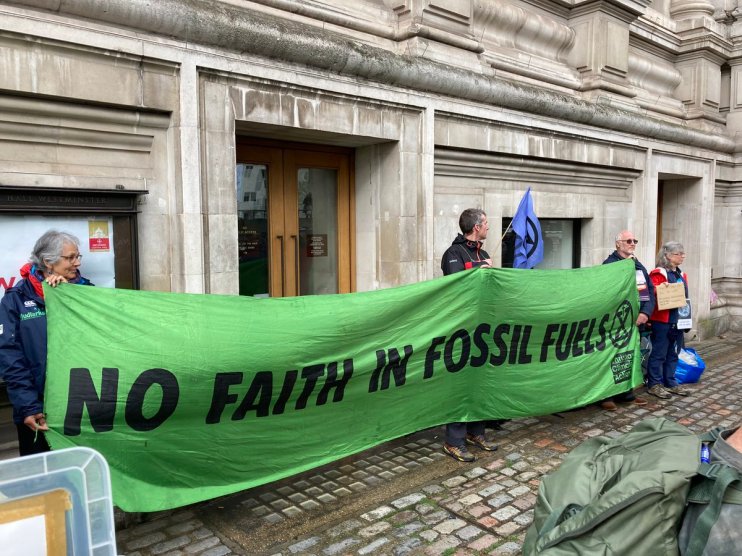Analysis: Shell profits reflect strength of industry as much as soaring oil and gas prices

Shell and BP unveiled bumper earnings this week, reigniting Labour’s push for the windfall tax to be tightened.
Labour wants the Conservative government to close so-called “loopholes” in the Energy Profits Levy, which enable energy firms to claim investment relief for new oil and gas projects – a chief aspect of Downing Street’s energy security strategy.
It also wants to use the profits from North Sea oil and gas companies not just to provide support for households and businesses grappling with energy bills, but also to freeze council taxes.
This was a pledge made in the same week as the local elections.
The argument is that if oil and gas giants are benefitting from a windfall, not driven by their own performance, then these profits can and should be harnessed for society’s needs.
The question, however, is whether we really are still in windfall conditions or not – and whether commodity rallies are still driving oil and gas prices.
There is no doubt this was a significant factor in the record profits recorded by Shell, BP and stateside rivals such as Chevron and Exxon Mobil last year.

However, oil and gas prices have eased this year – plummeting from historically high peaks last year down to near conventional trading levels.
Oil has dropped to $73 (£58) per barrel – barely half the 14-year high of $139 (£111) per barrel it reached last March – while gas is trading at below 90p per therm, way below the £8 per therm peak it hit nine months ago.
This has seen energy bills mercifully start to decline, with severe drops expected later this year – leading to the prospect of a competitive retail supplier market once again.
It has also meant the performance of Shell and its contemporaries reflect their business decision making and trading expertise as much as conditions.
What’s really behind Shell’s mega profits?
Shell plans to hand £9.5bn back to shareholders through dividends and stock buybacks in the first half of this year, which has stoked further calls for a bigger tax raid.
However, Shell’s £7.6bn profits were powered by higher output from the company’s liquefied natural gas division, which has been ferrying supplies into storage tanks across Europe for over a year, contributing to £3.9bn earnings for the integrated gas division.
BP’s £4bn profits were fuelled by smart trading from its gas and oil trading teams, while Chevron and Exxon Mobil both reaped the benefits of long-term investments.
So, while these companies are still making mega profits, it is unclear if they are unearned, or simply reflective of massive companies operating in a generally lucrative sector with high demand, powered by expertise and trading experience.

Fossil fuel companies were powerless in the face of the pandemic to suffer losses, and were equally undeserving of the bumper profits from Russia’s invasion of Ukraine.
However, their profits are now being driven as much by business acumen as circumstance.
So, while a windfall tax was a valid position last year, it is not immediately obvious this is still the case. Rather than toughening the levy, it might be time to consider a price floor – or even removing it altogether.
After all, while international oil and gas companies swallow up the headlines with multibillion pound profits, most of these earnings are not made in the UK. Instead, they are an expression of global businesses operating in dozens of markets.
The companies truly bearing the brunt of the windfall tax are firms that haven’t diversified from the North Sea such as the independent oil and gas traders that are essential for future exploration to meet our energy needs.